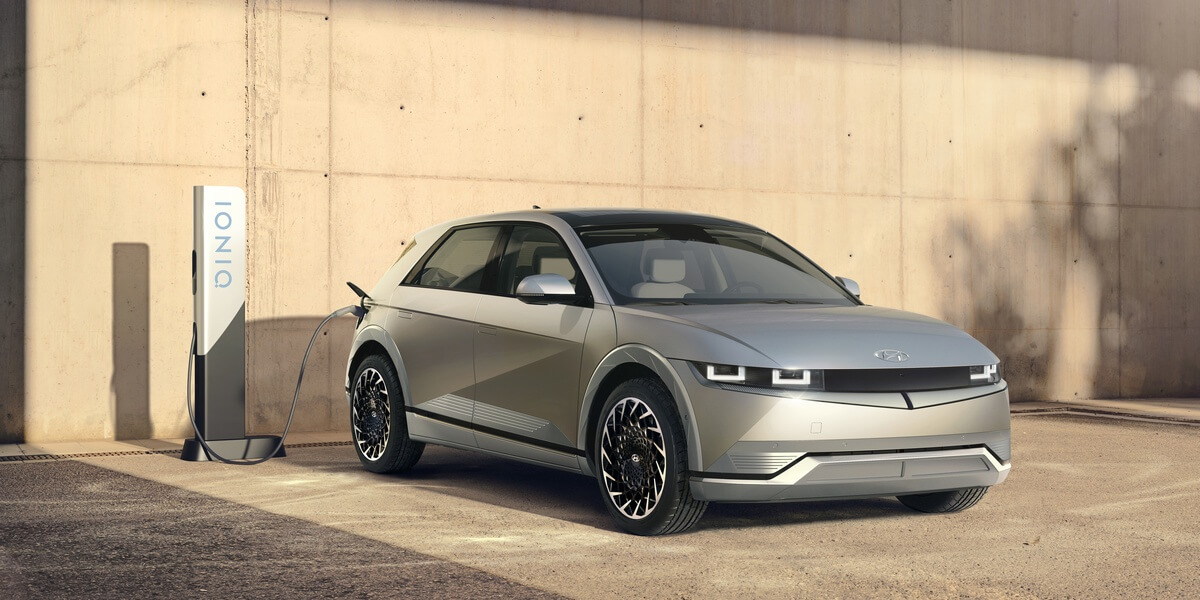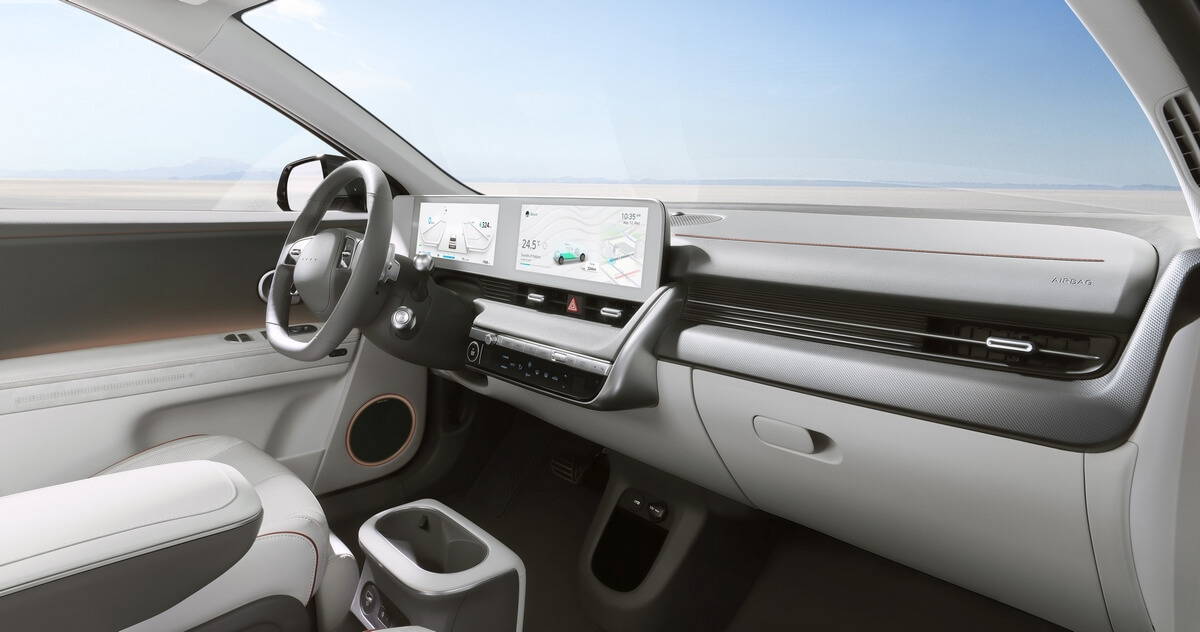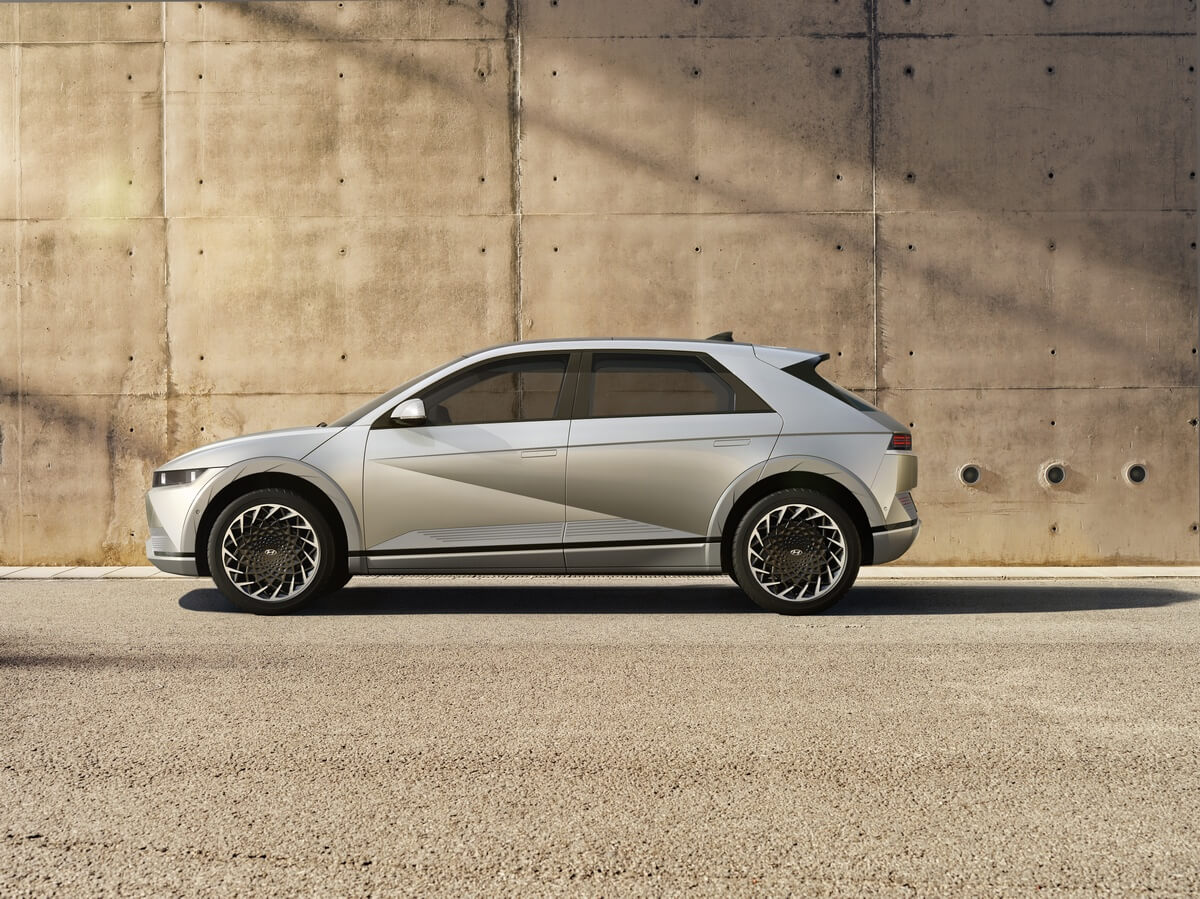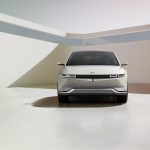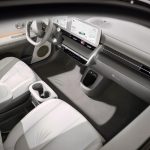Hyundai finally unveiled the much-awaited Ioniq 5, locked and loaded to disrupt the EV segment with attractive looks and a 292-mile range.
The Ioniq 5 is a semi-mid-sized CUV, inspired by the design of Hyundai’s first vehicle, the ‘Pony,’ introduced back in 1975. It’s also the first car built on Hyundai’s E-GMP platform, which is expected to be used to produce many more upcoming models to be released under the Korean umbrella, including Genesis and Kia.
292-Mile of Range and a 72.6kWh Battery
The Ioniq 5 will be very competitive in terms of range. Notably, two battery configurations are available— 58kWh and 72.6kWh. Moreover, Hyundai will offer a single-motor RWD variant producing 167 HP and an AWD model with two electric motors, churning out a hefty 302 HP.
Of course, the 72.6kWh battery and RWD one-motor combo provide the longest 292-mile range. However, that model accelerates to 62mph in 8.5 seconds, which is not exactly quick. However, the AWD version with the larger battery makes the same sprint in only 5.2 seconds and has a top speed of 115mph.
All models have an 800V battery capable of 350kW ultra-fast charging from both 400V and 800V systems. As a result, owners can recharge their Ioniq 5 from 0% to 80% in just 18 minutes or add 62 miles (100km) of range with a 5-minute charge.
Largest Cabin in the Segment
The Ioniq 5 measures 4635mm long and 1605mm high, placing it in the compact category. However, the massive wheelbase of 3000mm is much longer than usual, thanks to the E-GMP architecture. It also opens a lot of space in the cabin, which Hyundai claims is much larger than the competition. Also, by changing the back support and cushion angle, the first-row seats reduce travelers’ discomfort, allowing for a more comfortable seating position.
Interestingly, the cabin also features a high percentage of eco-friendly components, perfectly fitting the vehicle’s sustainable nature. Notably, the seats and door armrests are partially crafted from recycled materials. Meanwhile, the doors, dashboards, ceilings, and floors are made from biomaterials derived from sugar cane.
Since the Ioniq 5 has no engine under the hood, the space is available for storage. However, the capacity depends on whether the vehicle is rear-wheel-drive or all-wheel-drive.
The RWD variant obviously has the larger frunk with 57-liter of storage space, while the AWD model has a capacity of 24 liters. Unfortunately, the North American variants will have slightly smaller frunks. On the other hand, the trunk space on all models is 531L with all seats in place and 1591L with the second row folded, regardless of the setup.
Vehicle to Load Capability
The Ioniq 5’s Vehicle to Load (V2L) feature allows users to charge other electrical appliances up to 3.6kW of power. There are two ports for supplying electricity—one outside and another under the rear seats. And interestingly, the Ioniq 5 can provide power via the outside port even when turned off.
Overall, Hyundai seems to have struck a good balance with the Ioniq 5. The EV looks very attractive, provides a lot of space, and is very competitive in range. We think Hyundai has a winner on its hands and that Tesla should be worried—but only time will tell.


